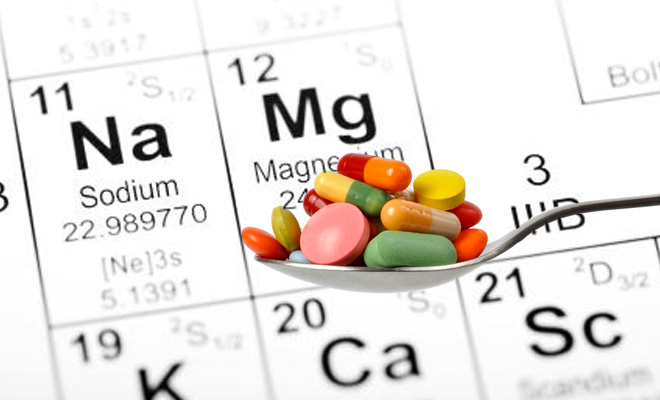
Health x Wellness
10 Minerals That Your Body Needs
What you consume on a daily basis can and will impact how you feel and perform, thus our daily diets must provide us with the essential nutrients in order for our body to function optimally.
One vital component that the human body requires is minerals as they are important for body structures and for controlling body processes. Apart from iron or (Fe) in the periodic table, minerals are not used up in the body, but are excreted after carrying out their functions, hence the need to replenish them with supplements. Here are a list of 10 minerals and a basic explanation of roles in the human body.
Calcium (Ca) – The most abundant mineral in the body, calcium is critical for strengthening the bones and teeth. Calcium is also vital for cell function, muscle contraction, blood clotting, the transmission of nerve impulses from nerve endings to muscle fibres as well as reduce the risks of Osteoporosis.
Copper (Cu) – Copper combines with certain proteins to produce enzymes that act as catalysts to help a number of body functions such as provide energy required for metabolism, the transformation of melanin for pigmentation of the skin and the formation of cross-links in collagen and elastin to maintain and repair connective tissues.
Iodine (I) – Iodine is needed for the normal metabolism of cells. Metabolism is the process of converting food into energy. Humans need iodine for normal thyroid function, and for the production of thyroid hormones.
Iron (Fe) – Iron is essential in the formation of certain enzymes and is the core element in haemoglobin, which is the oxygen-carrying structure of the red blood cell. Low iron diets may result in a blood disorder called Anemia.
Magnesium (Mg) – This mineral is also required for teeth and bone formation, muscle contraction, and transmission of nerve impulses.
Manganese (Mn) – Some of the health benefits of manganese include a benefit to healthy bone structure, bone metabolism, and helping to create essential enzymes for building bones. It also acts as a co-enzyme to assist metabolic activity in the human body.
Potassium (K) – This mineral along with sodium and calcium maintains normal heart rhythm, regulates the body’s water balance, promotes cellular growth, aids muscle contraction, and conducts nerve impulses. It also liquefies the uric acid crystals caused by Gout which are later on flushed out of the body.
Selenium (Se) – Selenium helps the body with making special proteins, called antioxidant enzymes, which play a role in preventing cell damage as well as help protect you after a vaccination. Some medical studies suggest that selenium may help with the following conditions such as the prevention of cancer and cardiovascular diseases, but more studies are needed.
Sodium (Na) – The body uses sodium to control blood pressure and blood volume. Sodium is also needed for your muscles and nerves to work properly.
Zinc (Zn) – This is another important mineral. In males, zinc protects the prostate gland from infection (prostatitis) and ultimately from enlargement (prostatic hypertrophy) while in females, zinc can help treat menstrual problems and alleviate symptoms associated with premenstrual syndrome (PMS). Zinc is also vital for the immune system.









